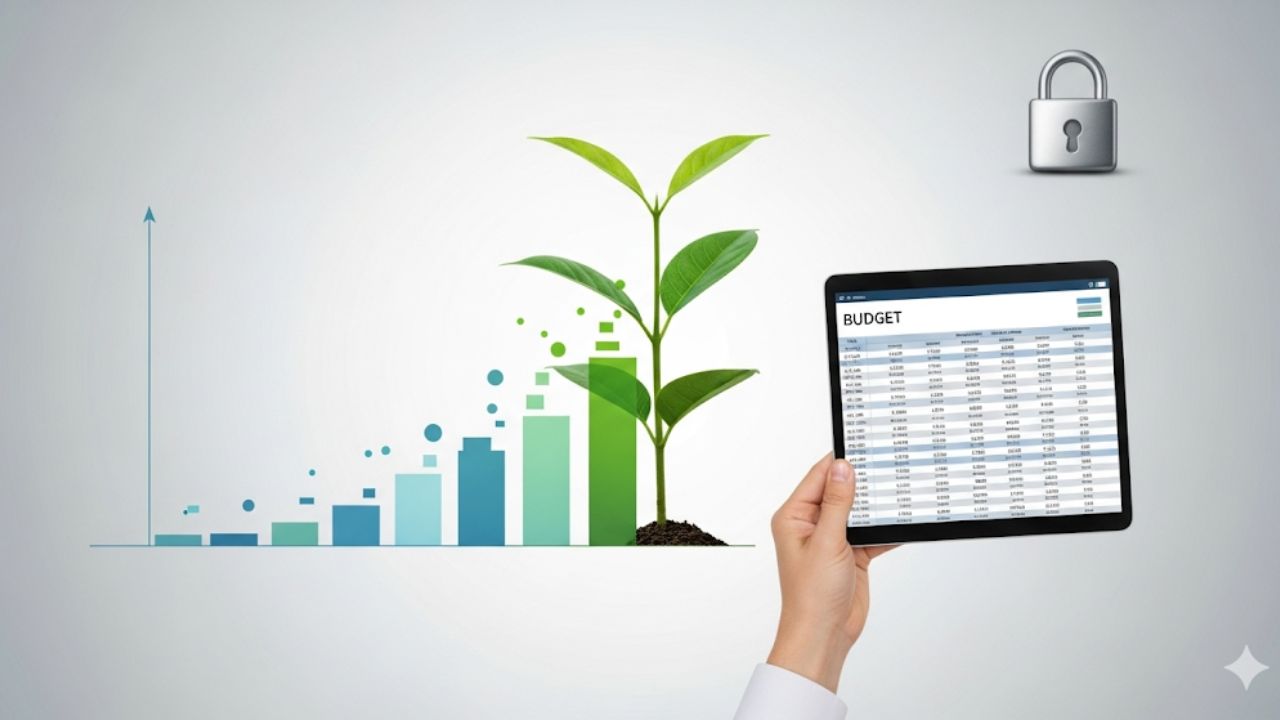A budget is one of the most powerful and fundamental tools in personal finance. Far from being a restrictive plan that limits your spending, a budget is a strategic blueprint that gives you control over your money.
It helps you understand where your income is going, identify your financial priorities, and make intentional choices about how you save and spend.
Ultimately, a budget empowers you to align your daily spending with your long-term financial goals.
1. Gain Control of Your Money
Without a budget, your money can feel like it has a mind of its own. You earn it, and then it seems to disappear without a clear destination. A budget flips this dynamic on its head. It forces you to become proactive, not reactive, with your finances.
By creating a plan for every dollar you earn, you decide in advance how much you’ll allocate to bills, savings, and discretionary spending. This prevents you from wondering, “Where did all my money go?” at the end of the month, because you’ve given it a purpose.
2. Achieve Your Financial Goals
This is perhaps the most significant benefit of a budget. Whether your goal is to pay off credit card debt, save for a down payment on a house, build an emergency fund, or travel the world, a budget provides the roadmap to get there. It turns abstract aspirations into concrete action steps.
By tracking your income and expenses, you can determine how much you can realistically set aside each month to achieve your goals.
For example, if you want to save $5,000 for a vacation in one year, your budget will show you that you need to save approximately $417 each month. This simple calculation makes a seemingly overwhelming goal feel achievable and measurable.
3. Identify and Correct Bad Spending Habits
Many people are unaware of their spending habits until they see them laid out in a budget. That daily coffee, the subscription services you no longer use, or the frequent restaurant meals can add up to a significant amount of money each month. A budget provides a clear picture of these patterns, often revealing “money leaks” you didn’t know existed.
Once you see these habits, you can make informed decisions. You might decide that daily coffees are a priority for you, but that eating out three times a week is not. A budget helps you make these trade-offs consciously, allowing you to reallocate that money to a more meaningful goal.
4. Reduce Financial Stress and Anxiety
Money is a leading cause of stress and anxiety for many people. Living paycheck to paycheck, worrying about unexpected bills, or not knowing if you can afford a large purchase can be emotionally draining. A budget addresses this stress by providing clarity and a sense of security.
When you have a budget, you know exactly what your financial situation is at all times. You have a plan for how to handle your bills and have set aside money for emergencies. This eliminates the fear of the unknown and replaces it with the confidence that you are in control of your finances.
5. Prepare for Emergencies and Large Purchases
Life is unpredictable. A car repair, a sudden medical bill, or a job loss can derail your financial stability if you’re not prepared. A budget helps you build a financial safety net by allocating a portion of your income to an emergency fund. This fund acts as a cushion to cover unexpected expenses, preventing you from going into debt or having to use a credit card.
Similarly, if you’re planning a large, non-recurring purchase, like new appliances or a home renovation, a budget allows you to save for it systematically without disrupting your daily finances. Instead of taking on debt, you can pay for it with cash you’ve already saved.
6. Facilitate Communication with a Partner
Money is a common source of conflict in relationships. When two people are managing finances together, a budget serves as a neutral ground for discussion.
It provides a structured way to talk about shared goals, individual spending habits, and financial priorities without judgment.
By working on a budget together, couples can become a financial team, making decisions collaboratively and reducing misunderstandings and arguments.
In conclusion, a budget is not a tool of deprivation; it is a tool of empowerment. It frees you from financial anxiety, helps you make your money work for you, and provides a clear path to achieving your most important financial goals.
By taking the time to create and follow a budget, you are building a foundation for a more secure and prosperous future.
